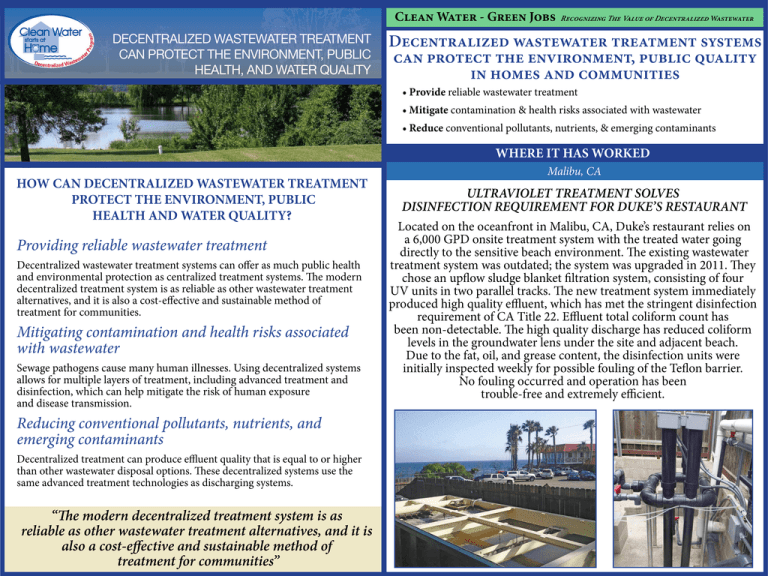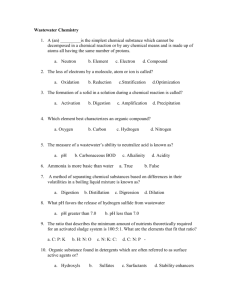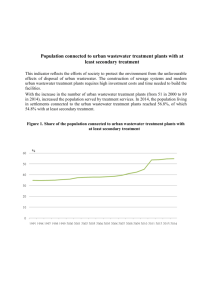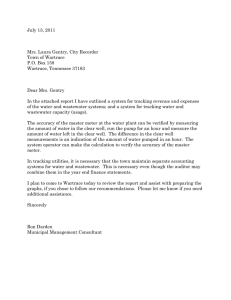“The modern decentralized treatment system is as reliable as other
advertisement

Clean Water - Green Jobs Recognizing The Value of Decentralized Wastewater Decentralized wastewater treatment systems can protect the environment, public quality in homes and communities • Provide reliable wastewater treatment • Mitigate contamination & health risks associated with wastewater • Reduce conventional pollutants, nutrients, & emerging contaminants WHERE IT HAS WORKED HOW CAN DECENTRALIZED WASTEWATER TREATMENT PROTECT THE ENVIRONMENT, PUBLIC HEALTH AND WATER QUALITY? Providing reliable wastewater treatment Decentralized wastewater treatment systems can offer as much public health and environmental protection as centralized treatment systems. The modern decentralized treatment system is as reliable as other wastewater treatment alternatives, and it is also a cost-effective and sustainable method of treatment for communities. Mitigating contamination and health risks associated with wastewater Sewage pathogens cause many human illnesses. Using decentralized systems allows for multiple layers of treatment, including advanced treatment and disinfection, which can help mitigate the risk of human exposure and disease transmission. Reducing conventional pollutants, nutrients, and emerging contaminants Decentralized treatment can produce effluent quality that is equal to or higher than other wastewater disposal options. These decentralized systems use the same advanced treatment technologies as discharging systems. “The modern decentralized treatment system is as reliable as other wastewater treatment alternatives, and it is also a cost-effective and sustainable method of treatment for communities” Malibu, CA ULTRAVIOLET TREATMENT SOLVES DISINFECTION REQUIREMENT FOR DUKE’S RESTAURANT Located on the oceanfront in Malibu, CA, Duke’s restaurant relies on a 6,000 GPD onsite treatment system with the treated water going directly to the sensitive beach environment. The existing wastewater treatment system was outdated; the system was upgraded in 2011. They chose an upflow sludge blanket filtration system, consisting of four UV units in two parallel tracks. The new treatment system immediately produced high quality effluent, which has met the stringent disinfection requirement of CA Title 22. Effluent total coliform count has been non-detectable. The high quality discharge has reduced coliform levels in the groundwater lens under the site and adjacent beach. Due to the fat, oil, and grease content, the disinfection units were initially inspected weekly for possible fouling of the Teflon barrier. No fouling occurred and operation has been trouble-free and extremely efficient.




